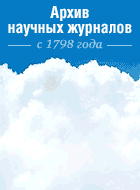Другие журналы
scientific edition of Bauman MSTU
SCIENCE & EDUCATION
Bauman Moscow State Technical University. El № FS 77 - 48211. ISSN 1994-0408
Europe's version of MIT takes shape, but not as once conceived
24.06.2010
 The European Institute of Innovation and Technology, conceived as Europe's version of the Massachusetts Institute of Technology, is slowly beginning to take shape, although with little resemblance to the flagship institution that was first envisioned. Instead, the fledgling organization now consists of clusters of institutions, including but not limited to universities, linked by their collaborative work on overarching themes, such as climate change and energy.
The European Institute of Innovation and Technology, conceived as Europe's version of the Massachusetts Institute of Technology, is slowly beginning to take shape, although with little resemblance to the flagship institution that was first envisioned. Instead, the fledgling organization now consists of clusters of institutions, including but not limited to universities, linked by their collaborative work on overarching themes, such as climate change and energy.In 2006, José Manuel Barroso, president of the European Commission, the executive arm of the European Union, formally unveiled plans for the establishment of a new institution to foster European innovation and research. The proposal immediately faced skepticism and opposition, especially from academics who questioned the wisdom of diverting money from the European Union's research and education budget toward a new institution. Some critics saw the plan as a misguided pet project of Mr. Barroso, for whom closing the innovation gap between Europe and the United States and key Asian economies through research and development has long been a policy priority.
The original conception of the EIT—as the institution is informally referred to in deliberate evocation of MIT—as a single institution was long ago abandoned, as was the proposal that it would be financed with nearly $4-billion for its initial five years of operation. Instead, it was decided that the EIT would consist of a network of clusters known as Knowledge and Innovation Communities, with each cluster incorporating universities, businesses, governmental, and nongovernmental organizations, and each taking on a shape and structure of its own. The European Union's initial financing for the project is less than $400-million for its initial five-year phase, which is intended to make up only about a fourth of each cluster's budget. The rest has been committed by other sources, including the companies that are key partners in each of the networks.
The first three Knowledge and Innovation Communities, selected in December, were presented last month in an official event at which details about the structure and membership of each were spelled out. The clusters include one focused on climate-change mitigation and adaptation, one devoted to sustainable energy, and a third dedicated to the "future information and communication society." The directorate of the EIT has taken up offices in Budapest and, together with the fledgling knowledge communities, the organization is taking on a discernible form. This summer, the first formal program, organized by the climate-change cluster, will begin, involving some 50 master's and doctoral students who will spend time in Paris, London, and Zurich.
Gérard de Nazelle, who in September was named the EIT's first director, has a doctorate in physics but comes from a career in industry. His corporate background is evident in his emphasis on how the new institute will foster the entrepreneurship that is at the heart of its mission. "In Europe, we have a number of world-class universities, businesses, and research institutions," he says, "but we do acknowledge that Europe has been lacking in terms of innovation." It is essential, he says, that the EIT's knowledge communities "are to be run as a businesses, and that they have a kind of operating culture built up on private business practices."
By bringing together people from disparate fields and backgrounds in the new clusters, under strong, corporate-style leadership, he believes that the EIT will serve as a "catalyst" for the kind of innovation that has not flourished as freely in Europe as in the United States.
Source: The Chronicle
European Institute of Innovation and Technology - website
| Authors |
| Press-releases |
| Library |
| Conferences |
| About Project |
| Phone: +7 (915) 336-07-65 (строго: среда; пятница c 11-00 до 17-00) |
|
||||
| © 2003-2024 «Наука и образование» Перепечатка материалов журнала без согласования с редакцией запрещена Phone: +7 (915) 336-07-65 (строго: среда; пятница c 11-00 до 17-00) | |||||



